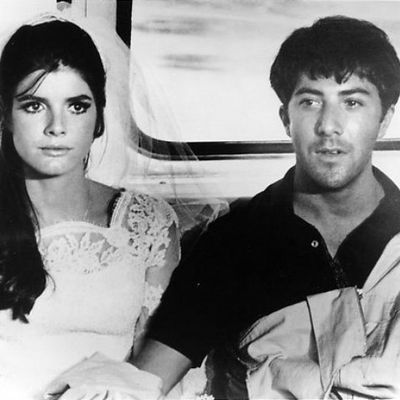
A lot of ink has been spilled over America’s changing marriage mores. In short, Americans are getting married later, young people aren’t as invested in the institution, and “traditional” notions of breadwinning and child-rearing have been changing for decades.
In a new study in the journal Emerging Adulthood, researchers from Brigham Young and Ball State tried to get past the somewhat oversimplified question of whether college students are “pro-” or “anti-” marriage — people tend to have complicated views on the subject, after all — to see if there are coherent groups they can be lumped into when it comes to their marital beliefs and aspirations.
Working with a bunch of data they gathered from 571 students at a public university in the Midwest, they came up with three categories: “enthusiasts,” “hesitants,” and “delayers.”
Enthusiasts (32 percent of the sample) “placed the most importance and permanence on marriage. They also expressed a stronger belief that marriage would require effort and adhered to traditional marital gender roles more than those in other groups.”
Hesitants (58 percent) “appeared to value marriage and expect to marry but were more hesitant about the permanence of marriage and expect to marry later than what they thought would be ideal.”
Delayers (10 percent) had a “general desire to delay (or possibly avoid) marital transitions … They also generally placed less importance and permanence on marriage compared to the other two groups, reported less belief that marriage required effort compared to the Enthusiast class and were the least traditional as a group in terms of their belief in marital gender roles … Results suggested that this group deprioritized marriage compared to other life goals.”
The groups differed in key ways when it came to their beliefs about marriage and gender roles (click here to see a table with a rundown), as well as in terms of gender, socioeconomic class, and religion (click here for those numbers).
As the researchers point out, this study was limited by the fact that it took place at one at a single college, involved a female-skewed sample, and so on. More research will likely lead to a more nuanced understanding of these dynamics. Still, the paper highlighted a few key points about circa-2014 marriage in the U.S.:
1. Americans may have more conflicting, complicated views on marriage than ever before. Never before has there been more sexual freedom and opportunity for young people, and, within certain populations, (almost) never before has it been harder to make ends meet as a lower- or middle-class American. At the same time, most young people do appear to still believe in marriage, to a certain point, and see getting married as a long-term goal. So while the researchers came up with three main types of marriage belief systems, that trio may only tell part of the story: “Future investigation of low-income and noncollege populations may produce three, four, or more classes of marital paradigms” — paradigms adapted to very different circumstances.
2. Certain gender norms about marriage remain firmly in place. Just 18.7 percent of marriage enthusiasts were men, suggesting women have a much greater desire and/or feel a lot more pressure to get married, or at least to get married at a young age. (Or insert lame joke about guys not being willing to commit.) It would be interesting to see how the gender breakdown differs in other parts of the country since there are big regional differences when it comes to marriage — would there be less of a gender divide in California or Massachusetts, where getting married later is a lot more common?
3. The family you grew up in usually has a major impact on how you view marriage. Delayers “were more likely to come from unmarried parents and lower income family backgrounds, two factors that tend to be correlated together, and may hint at the possibility that these emerging adults may be seeking to avoid an institution they experienced within a negative context in their family of origin.” Gripes about poor people not understanding the value of marriage may be ignoring that the concept takes on a very different shape when you didn’t grow up surrounded by stable families.




